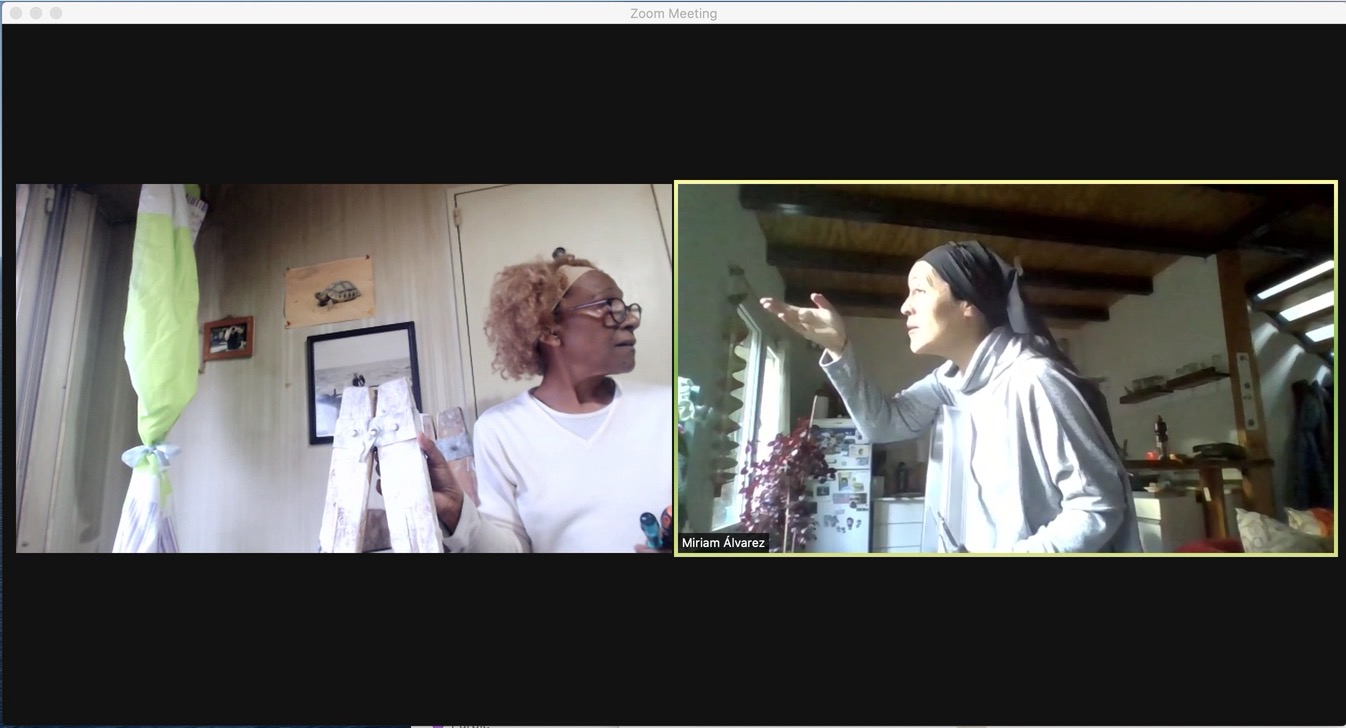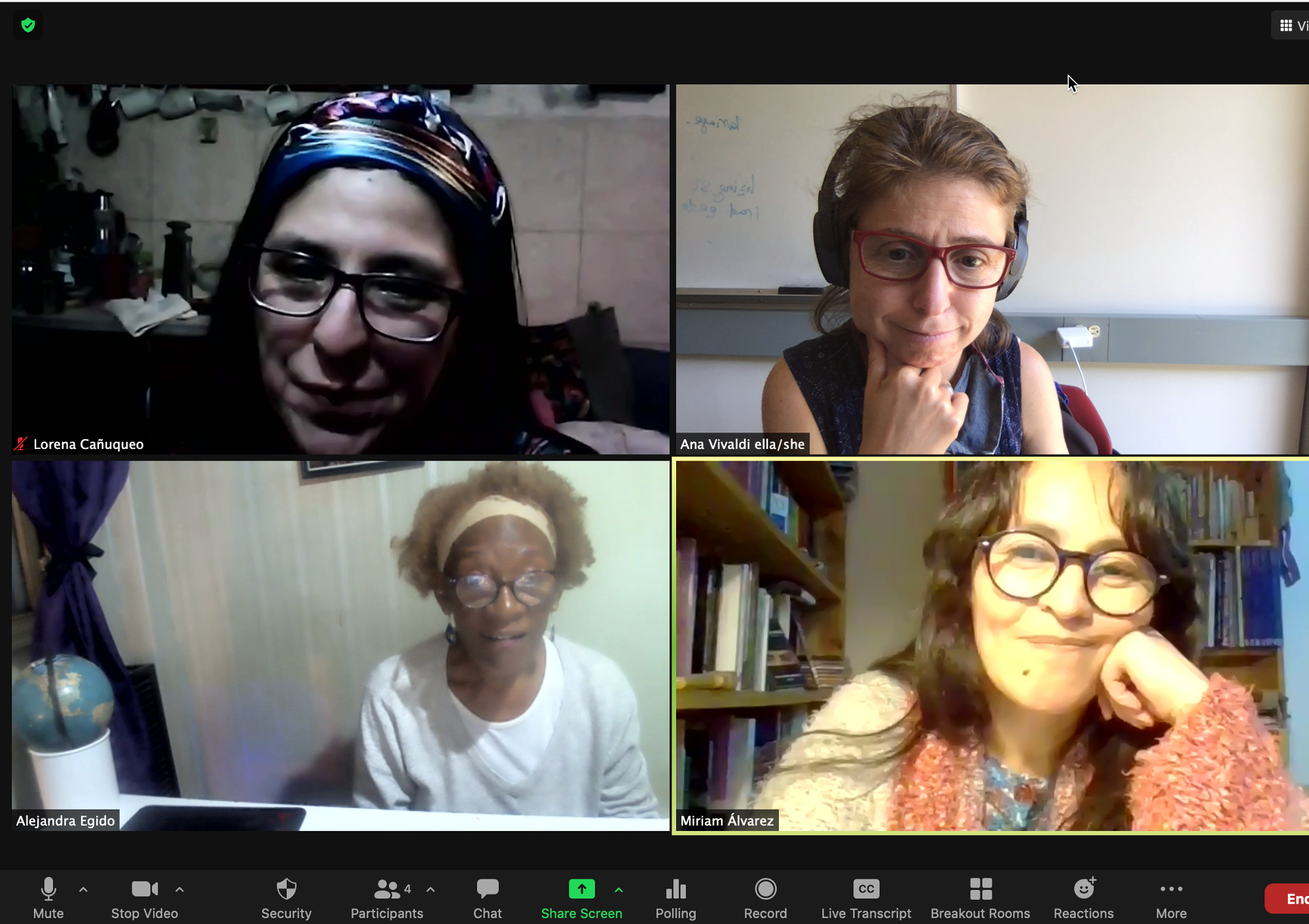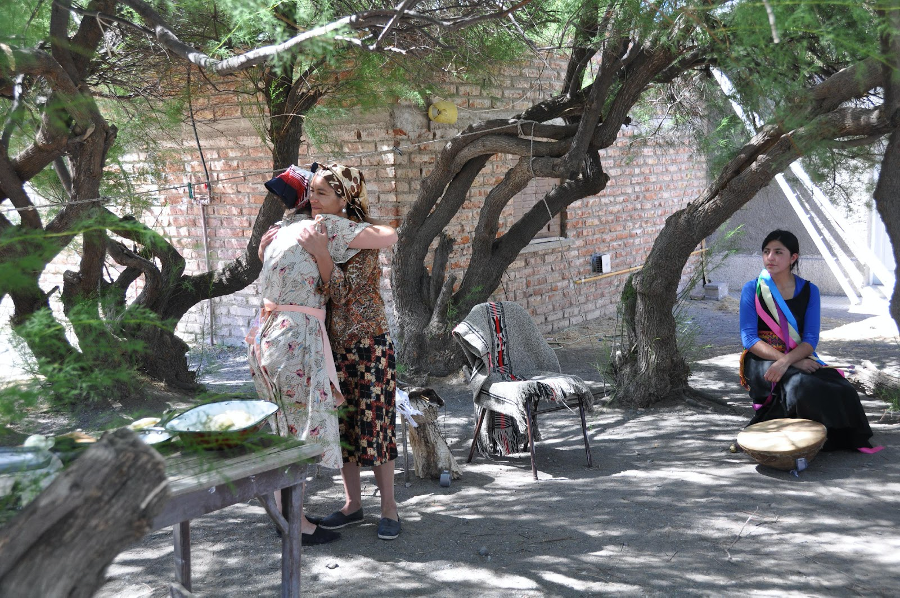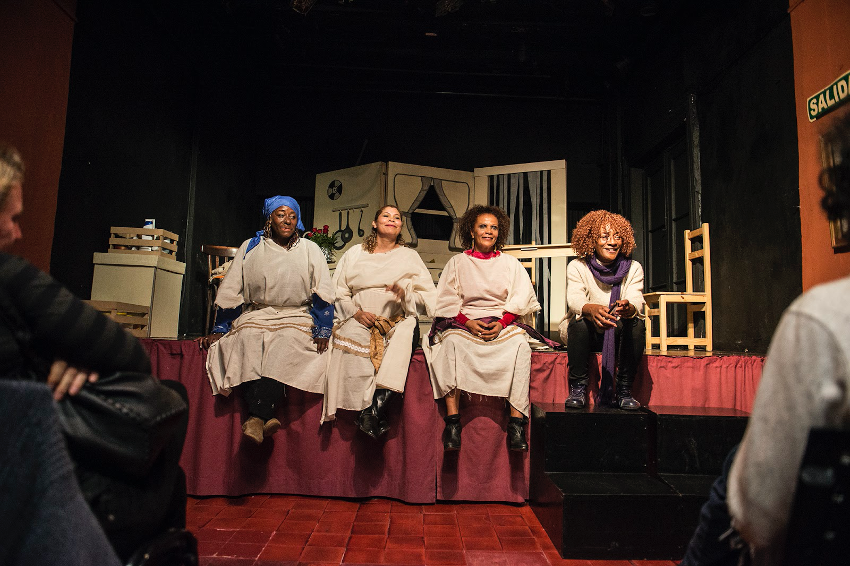Teatro en Sepia / Teatro El Katango Collaboration
Lorena Cañuqueo and Ana Vivaldi
The scenes we see here are part of a collaboration between "Teatro en Sepia" (a theatre company of Afro-descendants directed by Alejandra Egido since 2010), the Mapuche theatre group “El Katango” (directed since 2002 by Miriam Álvarez), and the CARLA project. This work was based on collaborative research. We analysed critical moments of the plays, exchanged research methodologies and theatrical staging, and generated a critical discussion of academic concepts from a perspective enriched by the experiences of activism. The collaboration led to dramaturgical creation and performance and the generation of theoretical knowledge.
We promote methodologies of critical activism to enhance links between activism and academia. We also use Latin American collaborative ethnography traditions, where knowledge is dialogically constituted. We also use transversality and translation practices. Transversality generates common forms without the homogenisation of experiences and identities. We addressed the shared struggles of Afro and Mapuche people, without reducing their heterogeneity. Translation has to do with sharing political strategies from one space to another, adapting practices to the context and the desires of each space.


The discussion led to new research questions, which were worked on for joint conference presentations. From an interdisciplinary and intersectional perspective, we address how racism is expressed in Argentina and what actions Mapuche and Afro-descendant populations and activists generate. The research also produced a novel form of dramaturgical creation for TES and El Katango: a work of exploration and drama writing that brought together Afro and Mapuche trajectories.
TES produced a drama text with a Mapuche character, and El Katango incorporated a scene in which an Afro woman and a Mapuche woman, both from Argentina, converse with each other (the text of that scene can be downloaded here). The playwrights added elements of collaborative research to address, through poetic procedures, how the nation's system of exclusion and inclusion impacts Afro and Mapuche experiences. Racial formation appears materialised in dramaturgy that addresses the forced displacements and corporalities of women who have been racialised by a nation-state that has historically silenced their presence. The created dramaturgy re-unites trajectories that the state sought to disconnect by annulling any possible alliance between Indigenous, Black and other non-white people.

Teatro Mapuche El Katango

